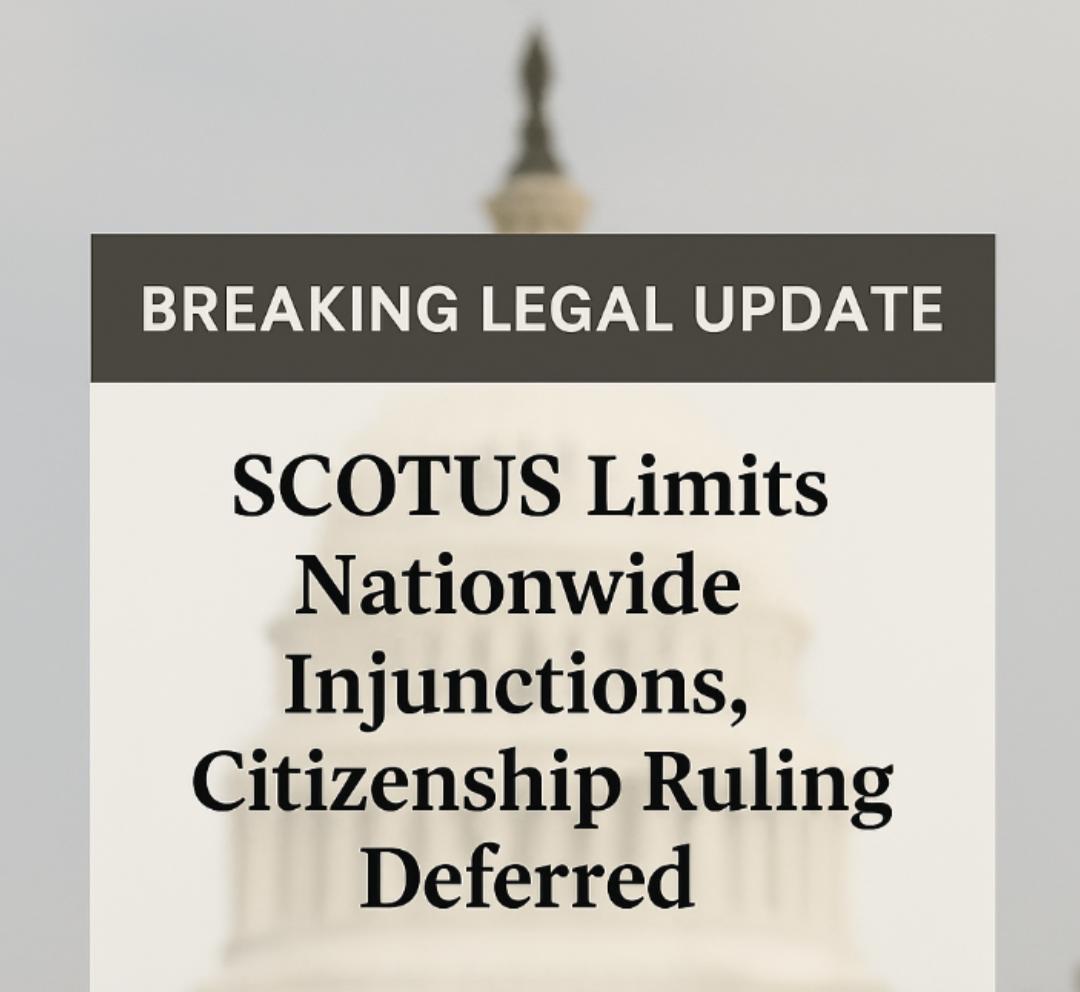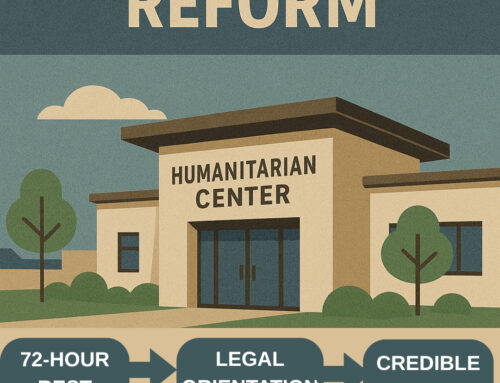June 27, 2025 – Washington, D.C.
In a landmark 6–3 ruling today, the U.S. Supreme Court significantly curtailed the power of federal district court judges to issue nationwide (or “universal”) injunctions against presidential executive actions while deliberately sidestepping the constitutionality of President Trump’s controversial executive order targeting birthright citizenship.
Key Points
-
Procedural win for Trump: The Court held that broad, universal injunctions exceed congressional authority under the Judiciary Act of 1789, and that district courts may only enjoin government actions as they apply to the specific plaintiffs in a case.
-
Citizenship question left open: The justices intentionally did not address whether Trump’s Executive Order No. 14160—aimed at denying citizenship to children born in the U.S. to noncitizen or undocumented parents is lawful. That constitutional question remains unresolved and will be revisited in the next Term (starting October 2025).
-
30-day pause: The Court has stayed any broader injunctions for 30 days, giving lower courts a window to revise, narrow, or dissolve nationwide blocks
-
Majority & dissent voices:
-
Majority (Barrett, Roberts, Thomas, Alito, Gorsuch, Kavanaugh): Emphasized that equitable relief should be limited to “complete relief” for plaintiffs—not universal orders.
-
Dissent (Sotomayor, Jackson, Kagan): Warned against undermining judicial authority to safeguard constitutional rights, with Justice Sotomayor condemning the majority’s move as “gamesmanship”.
-
Broader Implications for Immigration & the Courts
Judicial Power Checks
This decision reshapes the balance of power between branches, restricting district courts from unilaterally striking down federal actions for the whole nation. Legal designs ahead may emphasize plaintiff‑specific rulings or narrow class-action lawsuits .
Unequal Rights in Different Regions
Without nationwide injunctions, constitutional protections could vary by district, leaving immigrant families vulnerable depending on where they live.
Citizenship Battle Looms
Today’s ruling doesn’t settle whether birthright citizenship can be legally revoked. The fight continues—with the Supreme Court expected to consider the full merits in October. Proponents of the order argue that the 14th Amendment’s phrase “subject to the jurisdiction thereof” excludes undocumented or temporary-residence parents; critics point to established precedent (like Wong Kim Ark) and insist the Executive cannot override constitutional text.
About the Author
Elizabeth Garvish
Elizabeth L.A. Garvish founded Garvish Immigration Law Group, LLC in 2011 after practicing immigration law in small boutique firms, big law and nonprofits. Elizabeth is a frequent speaker and presenter on entrepreneurship and U.S. immigration topics around the world. She is an active member of the American Immigration Lawyers Association (AILA) and serves on various national committees and is the Past Chair of the Georgia-Alabama Chapter of AILA. Elizabeth is also a certified member of the EO Global Speakers Academy.




